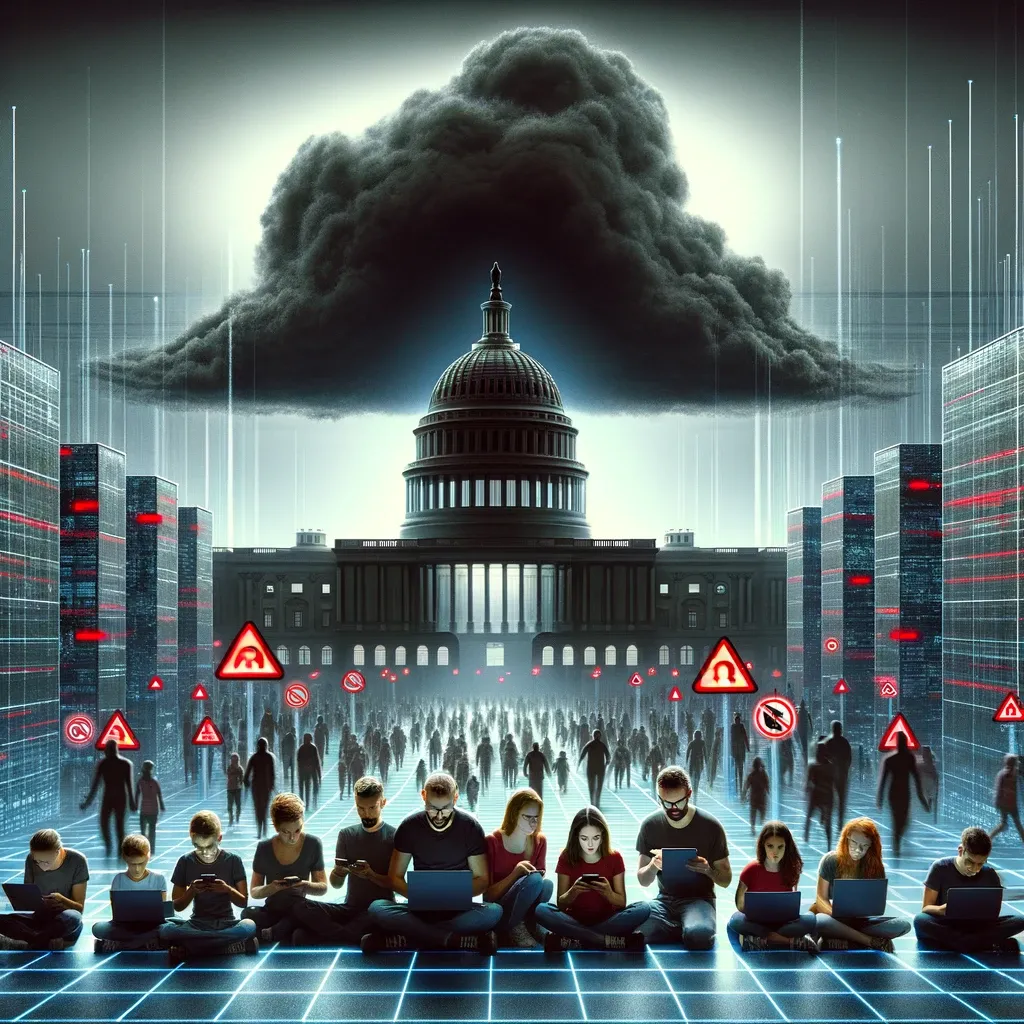Dangerous Oversight - How the House's KOSA Bill Threatens Free Speech and Privacy
The House's version of the Kids Online Safety Act remains a dangerous mess, threatening free speech and privacy under the guise of protecting minors.

The House's version of the Kids Online Safety Act remains a hotbed of controversy, threatening free speech and privacy under the guise of protecting minors.
In May 2024, the U.S. House of Representatives introduced a companion bill to the Kids Online Safety Act (KOSA). Bills like these are supposedly aimed at regulating the digital environment to protect young internet users, but they actually end up making things worse.
These bills pose significant threats to fundamental freedoms while pretending to make your life more secure.
By enforcing broad censorship measures and vague age-verification requirements that will be enforced by shady 3rd party companies, KOSA jeopardizes the privacy and safety of internet users everywhere.
These bills also restrict access to a wide range of legally protected, essential information. In the information age, bills like this are the precursor to book burnings.
Why should the government and for-profit companies get to choose what information you see online? Why do they get to make decisions for you? The government's job is to uphold protections for everyone while ensuring that the freedom of its citizens isn't infringed. It's not right that the government is considering bills that will force you, your family, and your friends into the control of gate-keeping companies.
As it stands, these bills give the government excessive power to determine acceptable online content. That's dangerous in the extreme. It undermines freedom and privacy, but bills like these also fail to stop dangerous content reaching kids anyway. Technology like VPNs already allow people to bypass State-based censorship measures, which means that KOSA is simply setting itself up for another technology arms race. Furthermore, as Ars Technica reports, "KOSA also has been amended to vaguely protect [major social media] platforms' trade secrets" further creating problems of transparency.
Despite minor modifications to the original KOSA bill, this House version mirrors its Senate counterpart and maintains the same fundamental flaws, leaving gaping wounds in the First Amendment by restricting protected online speech and enforcing broad censorship across digital platforms.
Luckily, the Electronic Frontier Foundation (EFF) has taken up the fight against these bills. The EFF has created a tool to help you contact your representatives in just a few clicks!. All you need to do is fill out your identifying information and press send.
By taking this step, you're making a real impact in safeguarding the fundamental rights of Americans everywhere, so tap that button today!
